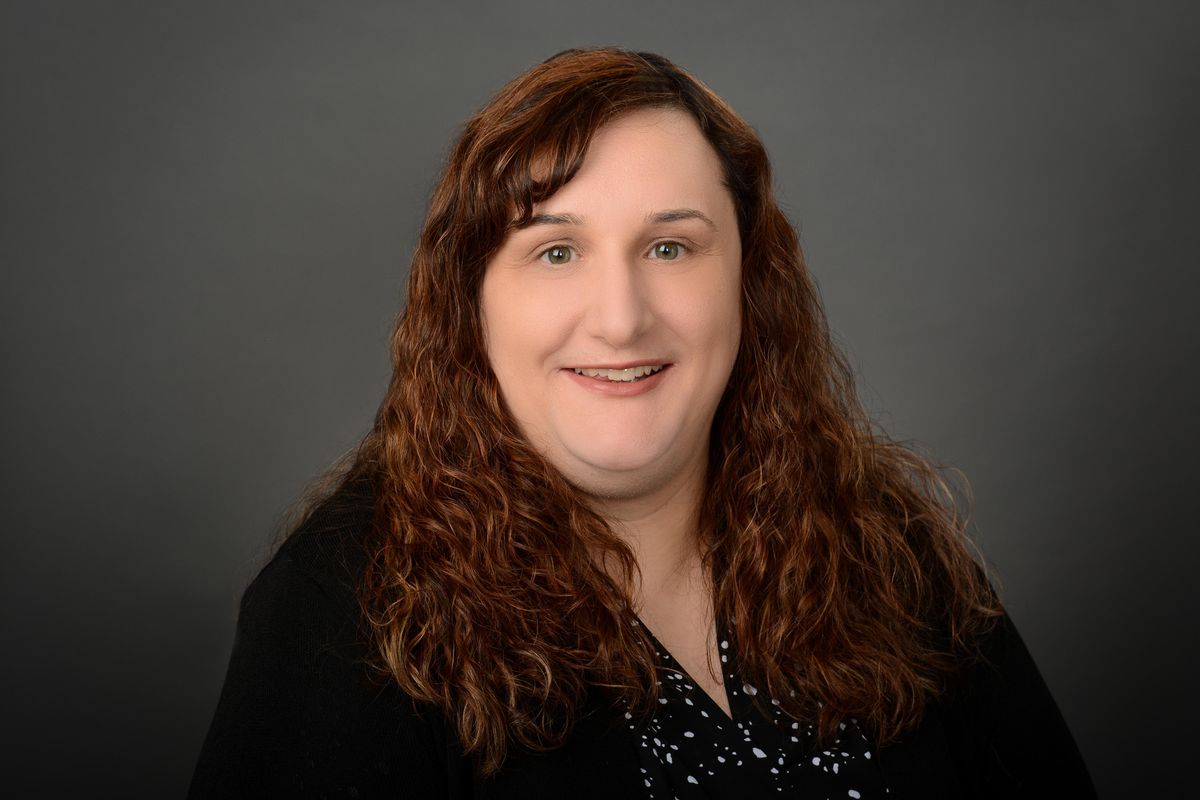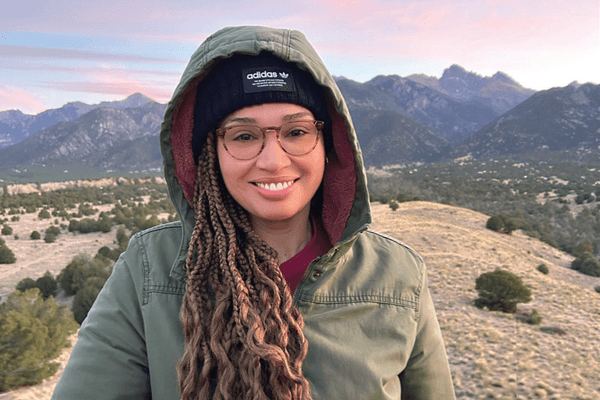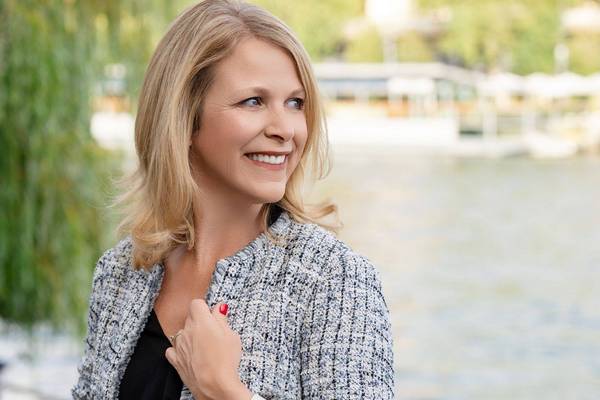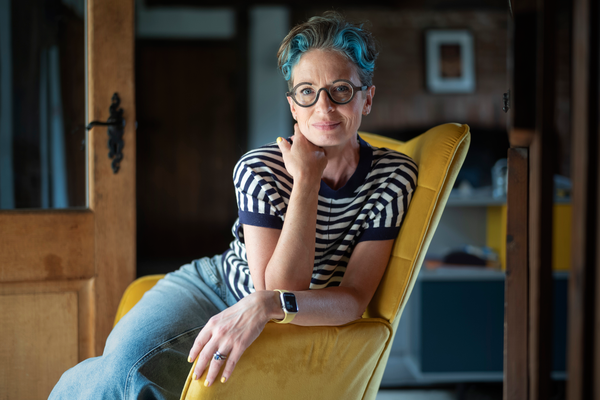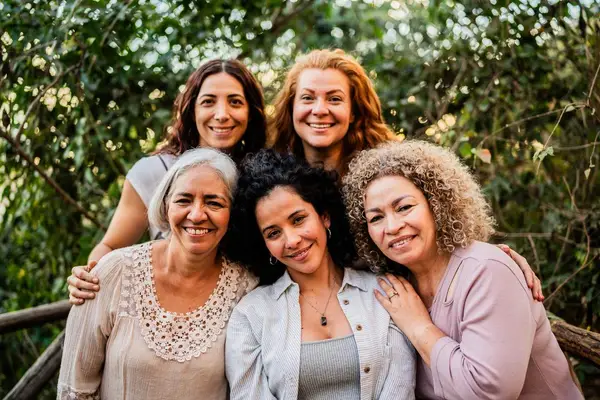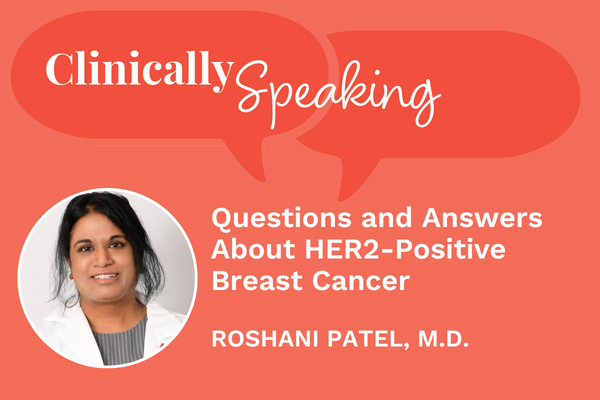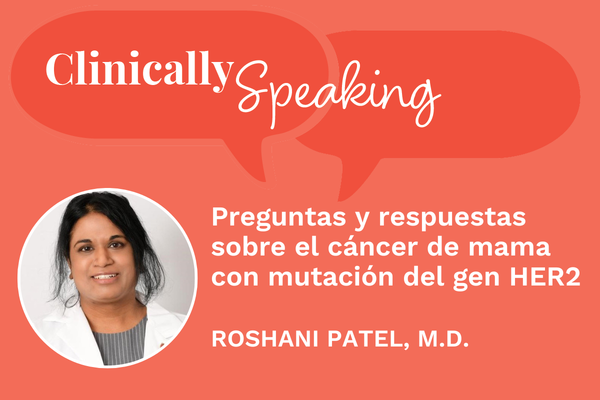October 15 is National Mammography Day.
As told to Jackie Froeber
The mammogram stars aligned for me in 2017. I was working at St. Peter's Health Partners and popped into a co-worker's office to say hi. On her desk was a flier advertising free mammograms over the weekend for employees.
I had just turned 40 two months earlier, and since I didn't have any plans that weekend, I signed up.
Although my grandmother had breast cancer, I wasn't worried or anxious about the screening. She was much older when she was diagnosed, and although it seems naive now, I didn't think a young, otherwise healthy woman like myself should be concerned. I signed up because it was convenient.
That Saturday in February I had my mammogram and didn't give it a second thought. I spent the rest of that weekend hanging out with my kids and my husband and got up for work on Monday like every other weekday. That afternoon, I received a call from the doctor's office where I'd gotten my mammogram. They said I needed to come back in for follow-up imaging and an ultrasound. In the back of my mind, I remembered reading that dense breast tissue like mine can make it harder to evaluate the results of a mammogram, so I wasn't pushing the panic button yet.
After I had the repeat mammogram and ultrasound, I met with a kind and patient nurse navigator named Mary who reviewed my results, which showed calcifications in my right breast. Mary explained that breast calcifications are common and typically benign (non-cancerous), but I still needed a needle biopsy — which I had two weeks later. At that point, I didn't feel the need to tell my family until I knew exactly what was going on. Why cause a fuss over something that was probably nothing?
A week or so after the biopsy, I was packing up my things to leave the office when I got a phone call. It was my primary care doctor with my biopsy results: It was cancer.
Hearing those words felt like a ton of bricks falling from the ceiling. I heard my doctor say that she was going to set me up with a breast surgeon, but at that moment I was only thinking about my kids. In my mind, cancer equaled death. But I had to be here for my kids. I wasn't just emotional — I was terrified.
I called my friend and co-worker who works on the floor above me. "I have cancer," I blurted out into the phone. Now, I was panicking.
I heard her footsteps running down the stairs before I could say anything else. She listened to me and called Mary, the nurse navigator, who could help me with questions and next steps.
When Mary and I went to the breast surgeon, I was a ball of nerves. Mary was calm and wrote everything down, which helped me process the visit. The surgeon recommended a lumpectomy but wanted an MRI to get a better look at the right breast before moving forward. It was a good thing she did: The MRI results showed cancer throughout the entire breast, which meant that a lumpectomy was no longer an option. I would need a mastectomy and reconstruction surgery, and because of scheduling, it would be another few weeks until I could get in for the surgery.
Every day that I waited was agony. It was maddening to know that I had cancer inside of me, and I wanted it out. Each day that passed had me wondering if it was growing or moving. I was still working full time and trying to keep my mind off the diagnosis and surgery, but the whole situation was emotionally draining. By this time, my husband knew, but not my kids. I was just so scared and didn't want to give them bad news or make them worry.
About a week before the surgery my 15-year-old son, Machai, asked, "What's going on with you, mom?" He sensed something was off. After we told him, he was so strong. "Just get it taken care of, mom," he said. "You're going to be fine." When I told my 12-year-old daughter, Mady, she immediately started crying and fell into my arms. It took all I had in me to be strong for Mady and Machai and tell them I was going to be okay (even if I didn't exactly know if that was true). We snuggled that entire night, and they didn't want to leave my side.
In April, two months after my initial mammogram, I had a mastectomy and reconstruction surgery. During the surgery, the doctor took lymph nodes to see if the cancer had spread. Fortunately, the lymph nodes had clean margins, meaning that it had not traveled outside of the breast. And the best news ever: I would not need radiation or chemotherapy. I was going to be fine.
Today, four years later, I'm cancer free. I still work at St. Peter's, and they still offer the free screening events that saved my life. Looking back, I know that a mammogram wasn't on my list of things to do when I turned 40, and I honestly don't know when I would have scheduled one. I tend to put other people first — like many women do — but this experience taught me that you can't put off essential health checks. It is so important for women to do monthly breast self-exams and have their yearly mammograms. Early detection saves lives, and I'm living proof of it!
